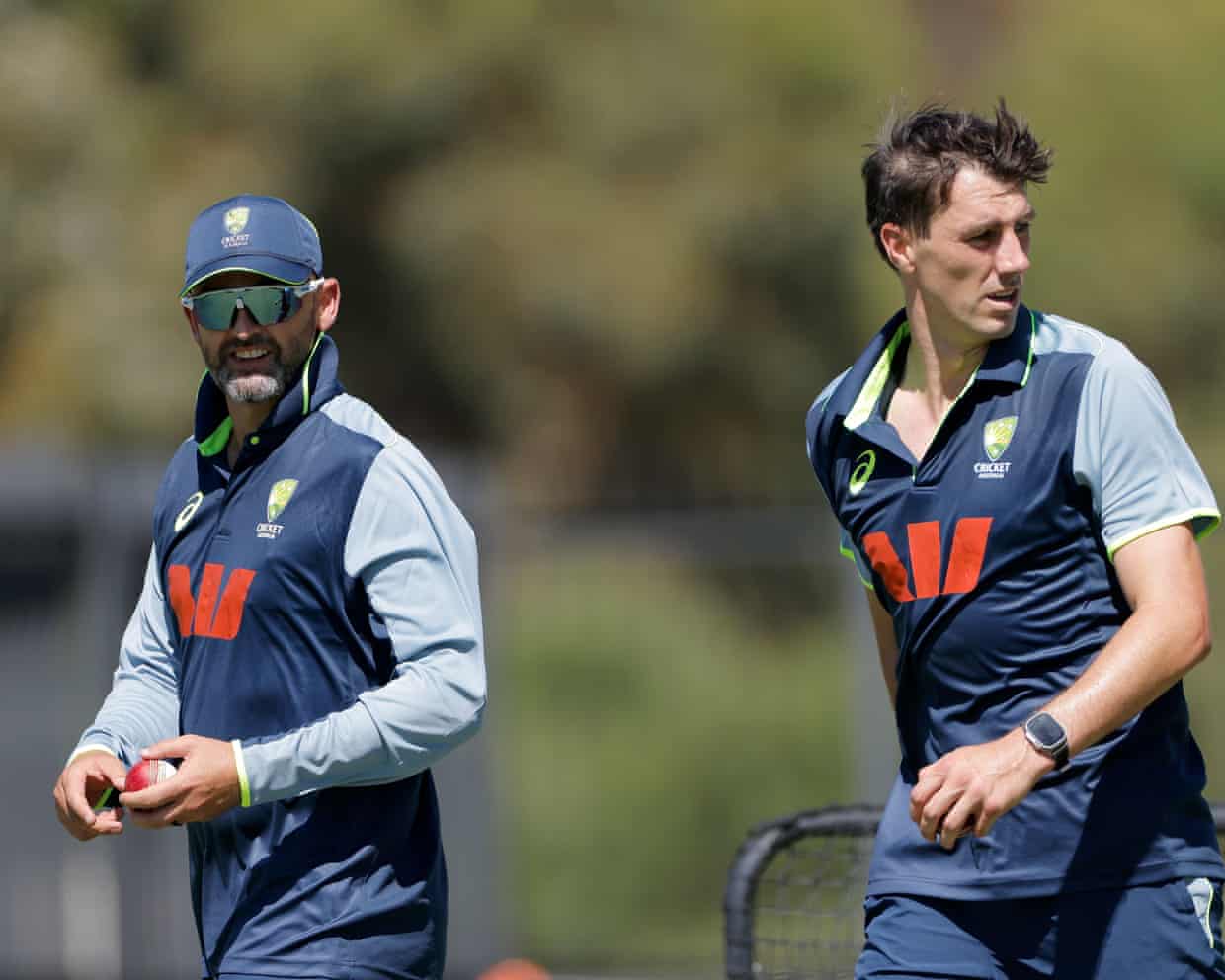The Spin | Stokes’ England have reminded us all that cricket is meant to be fun

Nobody talks about the last ball of the Ashes.It’s the first that’s famous.That wide that flies to slip, that cover drive for four, that wicket, bowled him! Last balls? I had to look them up.Moeen Ali slicing a drive behind to finish an innings defeat in a dead rubber in 2015; Boyd Rankin being taken at slip off Ryan Harris, Rankin playing in his one and only Test at the fag-end of a 30-over collapse in a 5-0 whitewash that’s been full of them in 2014; a Steve Harmison bouncer ricocheting away off Justin Langer’s shoulder for four leg byes, the only four Australia score in a run chase they’ll never get to make in 2005.It’s the difference between wondering how things will go, and knowing how they do.
One thing’s certain, there’s no guarantee there will be a happy ending.For the last decade, England’s Australian tours have ended in ashes, instead of with them.Andy Flower lost his job as head coach after one humiliating defeat, in 2013-14, Chris Silverwood lost his after another, in 2021-22.You can make a pair of XIs out of England players who played their last Test match at the back end of an Australian tour during the past 25 years, and still have a couple of men over to carry the drinks for either side.This England team have never claimed to care too much about consequences.
Ben Stokes, like Eoin Morgan with the one-day side before him, always says that whether or not a lofted drive is caught on the boundary isn’t as important as whether or not it was the right decision to play it in the first place, and in the field he’s happy to clap a bowler who gives away boundaries so long as they bringing the team nearer to taking that next wicket.But then the very reason Stokes tried to teach his team to play this way was so they would be in a better position to deliver the kind of cricket he thinks will do well for them in Australia.This Ashes series, for which they have been preparing for so long, already feels like the outcome they can’t get away from.It is Bazball’s make or break moment.And there are too many “I told you so’s” in English cricket for the team to get away with it if they do suffer another bad defeat in the next few weeks.
Stokes’s approach has been predicated on proving everyone wrong, and the flipside is it feels as if there are plenty of people who would be delighted to be shown right.Given that, it’s a good moment to point out that the important question isn’t just where this all ends up, but whether or not we enjoyed it along the way.Four years ago, England were an utterly abject cricket team.They had been beaten in four consecutive series and were trailing in the fifth, against India, when it was suspended because of Covid.They had won exactly one Test match out of 17, and lost 12 of them by embarrassing margins.
Eight wickets to New Zealand at Edgbaston, 157 runs to India at the Oval, an innings and 14 runs to Australia at Melbourne, 10 wickets to West Indies in Grenada.By the end, after all those months of nasal swabs and social distancing and biosecure bubbles and endless beatings at the hands of everyone they played, they were just about the most miserable and careworn Test team England had ever put on to a cricket field.So much of what Stokes and Brendon McCullum have done in the years since was in reaction to all that, as well as the former’s experiences during his five-month break from the game in 2021 when he had suffered a series of panic attacks.It was designed to remind everyone that it was meant to be fun, if it was meant to be anything at all.It still is now.
Even when the Ashes is on the line, and even if the team have eventually come to agree that they need to be a little more flexible in the way they go about playing the game.Everyday life has a way of crowding in, it can be hard to hold on to the lessons we learn in our lowest moments.This is the England team that peeled off successive fourth-innings chases of 277, 299, and 296 in one summer against New Zealand; that made 378 to beat India that same summer; that became the first touring team to win a clean sweep in Pakistan; that fought back to a draw after going 2-0 down in the Ashes; that beat India in Hyderabad off the back of one of the greatest innings ever played in the subcontinent, and then beat Pakistan in Multan off the back of another.It is the England team, too, that managed to end up losing a Test by an innings even though the opposition made only 326; who fetched up losing one of the better Tests ever played after making a cocksure declaration in the first innings against New Zealand, and then did the same thing against Australia; who were routed by 434 runs in Rajkot, and who were on the wrong end of one of Sri Lanka’s greatest victories.Between them, they have recorded some of the unlikeliest wins, suffered some of the ugliest dismissals, scored some of the most improbable centuries, and taken some of the most startling five-fers in the history of English cricket.
Sign up to The SpinSubscribe to our cricket newsletter for our writers' thoughts on the biggest stories and a review of the week’s actionafter newsletter promotionHowever this Ashes series shakes out, they have been, in turn, astonishing, preposterous, absurd, infuriating, and entirely, unrepentantly, unapologetically entertaining.This is an extract from the Guardian’s weekly cricket email, The Spin.To subscribe, just visit this page and follow the instructions.

Ultra-processed food linked to harm in every major human organ, study finds
Ultra-processed food (UPF) is linked to harm in every major organ system of the human body and poses a seismic threat to global health, according to the world’s largest review.UPF is also rapidly displacing fresh food in the diets of children and adults on every continent, and is associated with an increased risk of a dozen health conditions, including obesity, type 2 diabetes, heart disease and depression.The sharp rise in UPF intake worldwide is being spurred by profit-driven corporations using a range of aggressive tactics to drive consumption, skewer scientific debate and prevent regulation, the review of evidence suggests.The findings, from a series of three papers published in the Lancet, come as millions of people increasingly consume UPF such as ready meals, cereals, protein bars, fizzy drinks and fast food.In the UK and US, more than half the average diet now consists of UPF

Plastic surgeons wrestle with requests for ‘Mar-a-Lago face’: ‘You’re going to look like Maleficent’
The puffy, artificial look is rising in popularity - thanks to Maga elite such as Kristi Noem and Matt GaetzPicture a plastic surgeon’s office. You might imagine a sleek Los Angeles practice, with discreet entrances meant to conceal celebrities from the paparazzi. Maybe a Dallas high-rise, where monied housewives spend on postpartum “mommy makeovers”. Or a Miami location, where influencers and OnlyFans stars film TikToks of their BBLs. One city you might not think of is Washington DC

‘I knew I was starting to have a seizure’: women describe lasting effects of being ‘choked’ during sex
When Sophie* woke up on the floor after having a seizure, it took a while before she could comprehend that it had been caused by a man strangling her during sex.“I blacked out, my legs were kicking, I broke a glass,” she says. At 19, it was the first and only time anything like that had happened to her. “When I came to, I couldn’t work out who he was, where I was, what was going on. And it was utterly terrifying

Nearly half of sexually active young people in UK have experienced strangulation, study shows
More than two in five sexually active under-18s in the UK have either been strangled or strangled someone during sex, research has found, despite the serious dangers of the practice.“Choking”, as it is commonly known, has become normalised in young people’s sexual habits, the study by the Institute for Addressing Strangulation (Ifas) showed, with 43% of sexually active 16- and 17-year-olds having experienced it.More than half of people under the age of 35 have experienced it, with nearly a third wrongly believing there are safe ways to strangle someone.The survey also revealed a crisis of distress among those on the receiving end, with 36% saying they felt scared during the experience and 21% suffering dangerous physical symptoms, including dizziness and even loss of consciousness.It also showed a consent gap, with more perpetrators of strangulation believing their partner had consented to it in advance than those who had experienced it, with 1% saying they had explicitly not agreed to it the last time it happened

Children in care who lash out may no longer face automatic arrest under UK review
Vulnerable young people in care who assault staff or damage property will not automatically be arrested by police or charged, under proposals intended to reduce the excessive criminalisation of looked-after children.A government review will examine how children in state care who exhibit challenging behaviour can be offered targeted support such as trauma counselling rather than being punished through the criminal justice system.The aim is to restrict the “over-policing” of looked-after young people and reduce disproportionate numbers who offend while in care. Children in care are 10 times as likely to receive a caution or conviction than those not in care.The review, expected to report in the spring, aims to tighten an existing protocol introduced by the previous government in 2018

Woman killed herself after south London hospital neglect, coroner concludes
A woman killed herself after a south London psychiatric unit failed to search her possessions adequately, a coroner has concluded.Michelle Sparman, a personal trainer and call dispatcher for the Metropolitan police from Battersea, south-west London, died on 28 August 2021 at Kingston hospital, four days after trying to take her own life.The assistant coroner, Bernard Richmond KC, concluded that Sparman, 48, died of a hypoxic brain injury, determining she had died by “suicide whilst the balance of her mind was disturbed, contributed to by neglect”.He determined four probable causes of death: her struggles with anxiety and depression, including impulsiveness; a “difficult relationship” with her ex-partner, including “intemperate and excessive texting” from him, which called into question her mental health and fitness to be a mother; her “justifiable feelings of abuse” as a result of his behaviour, and inadequate searching on leaving and entering Rose Ward, a locked 20-bed female-only mental health unit at Queen Mary’s hospital in Roehampton.He cited her perimenopausal symptoms and financial and professional problems as possible causes

WH Smith CEO quits after accounting error that wiped almost £600m off value

Harvard to investigate Larry Summers’s Epstein ties as he exits OpenAI board

What is Cloudflare – and why did its outage take down so many websites?

Cloudflare says ‘incident now resolved’ after outage causes error messages across the internet – as it happened

Australia enter Ashes series with transition abruptly forced upon an ageing squad | Geoff Lemon

Stokes wants to be one of ‘lucky few’ England captains to claim Ashes victory in Australia